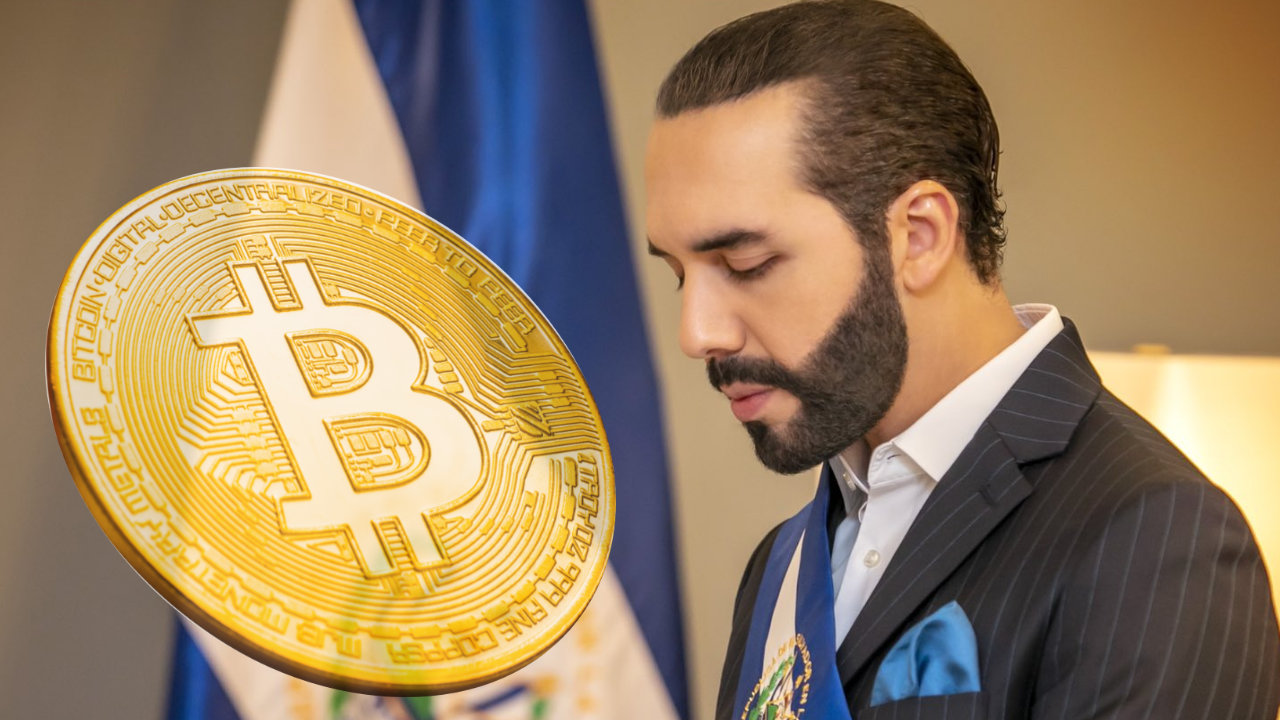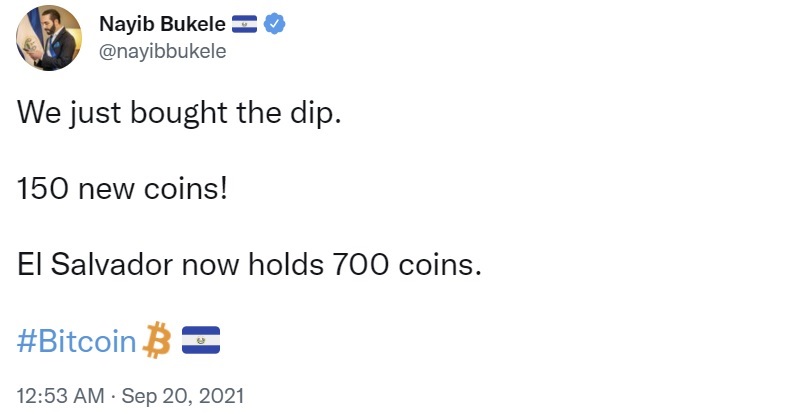
El Salvador, the country that made bitcoin legal tender alongside the U.S. dollar, has purchased more bitcoin. The Salvadoran government now holds 700 coins, according to President Nayib Bukele.
El Salvador Buys the Dip
El Salvador’s president, Nayib Bukele, announced early Monday morning that his government has purchased 150 more bitcoins. The country’s bitcoin law went into effect on Sept. 7 making the cryptocurrency legal tender alongside the U.S. dollar. He tweeted: “We just bought the dip. 150 new coins! El Salvador now holds 700 coins.”

“They can never beat you if you buy the dips … Presidential advice,” he further wrote.
The price of bitcoin was hovering around $45K when he made the announcement. It has since dropped to $43,326 at the time of writing based on data from Bitcoin.com Markets.
El Salvador started buying bitcoin on Sept. 6 ahead of the bitcoin law taking effect. On Sept. 7, Bukele announced that his country had bought a total of 550 bitcoins.
According to cryptocurrency ATM tracking website Coinatmradar.com, El Salvador now has 205 crypto ATM locations, making it the country with the third-highest number of crypto ATMs, behind only the U.S. and Canada. However, there are reports that the Salvadoran Court of Accounts is planning to investigate the government’s bitcoin ATM purchases and Chivo kiosk construction.
The launch of the government’s bitcoin wallet, the Chivo wallet, was off to a rocky start. However, on Sept. 16, Bukele claimed that the Chivo app is “already working 100%” According to reports, remittance providers like Moneygram and Western Union could lose up to $400 million annually if the Chivo wallet is used more.
On Friday, Bukele tweeted that 1.1 million Salvadorans already use the Chivo wallet, adding that “we haven’t enabled 65% of phone models yet.” He opined:
It seems that we will be able to bank more people in 1 month than they did with nationalizations and privatizations of traditional banks in 40 years.
What do you think about El Salvador buying more bitcoin? Let us know in the comments section below.
Image Credits: Shutterstock, Pixabay, Wiki Commons
Disclaimer: This article is for informational purposes only. It is not a direct offer or solicitation of an offer to buy or sell, or a recommendation or endorsement of any products, services, or companies. Bitcoin.com does not provide investment, tax, legal, or accounting advice. Neither the company nor the author is responsible, directly or indirectly, for any damage or loss caused or alleged to be caused by or in connection with the use of or reliance on any content, goods or services mentioned in this article.